On the heels of our day to honor the legacy of Martin Luther King, Jr., comes a little known Religious Freedom Day to remember the commitment that anchors our Bill of Rights in the First Amendment to the US Constitution. Many of us can recite the words — “Congress shall make no law respecting the establishment of religion or prohibiting the free exercise thereof…”
The date of January 16 was chosen for this day because it is the anniversary of the adoption of the Virginia Statute for Religious Freedom on January 16, 1786. Most Americans trace this fundamental right to Thomas Jefferson, the author of this resolution, but as John M. Barry has recently pointed out in Roger Williams and the Creation of the American Soul (2012), the long road to religious freedom in this country begins with Roger Williams.
In reading through Barry’s vigorous and well-documented narrative, I gained a new appreciation of this founding American figure, who is one of my ancestors on my mother’s side. Whether through DNA, family heritage, or cultural transmission I can see how my own work continues many of the ideas and values that inspired Williams. Moreover, the conflicts and commitments in which he struggled are as heated and important today as they were in his time. Indeed, I am also descended from those who contested with him in seventeenth-century America. Their controversy still echoes in conversations within myself as well as among my fellow citizens.
Williams and his wife Mary fled the religious and political persecution of Charles I and Archbishop William Laud and arrived in Boston in the winter of 1631, where he began serving as a minister in the small community that John Winthrop had just begun as a “citty upon a hill” to spread God’s Word and Law as a beacon to the world. In Williams’ subsequent resistance to the authoritarian religiosity of Winthrop’s “citty,” his eventual banishment from Salem into a winter storm, and his founding of the “plantation” that would become the state of Rhode Island we find the essential controversy over the meaning of religious liberty in this country.
On the one hand stands the freedom to create a holy community without outside interference. This was Winthrop’s colony of Massachusetts Bay. On the other hand is the freedom to follow the dictates of one’s own soul, unhindered by either religious or political authority. This is the freedom Williams sought, first in fleeing England, then in escaping the authority of Massachusetts and founding not only Rhode Island Plantation but also the first Baptist Church in America. It is a freedom he sought in leaving the Baptist church he founded to be a seeker, often in a remarkable companionship with the Wampanoags, Narragansetts and other Algonquin tribes whose language he learned and whose culture he esteemed.
The religious freedom Williams sought for each soul soon led to a defense of the political equality of all persons, including the Natives whose land, he held, was being unjustly taken from them and should only be settled with due compensation to them, the rightful owners of the land. Thus, Williams anchored political liberty in religious liberty. Just as religious liberty requires the civil liberties that his mentor Edward Coke saw as the core heritage of the English people, so it also requires that no “established” religion could dominate the civil order and require a religious conformity that violates the dictates of the soul’s own leading.
The conflict between Winthrop’s desire for the freedom to be a holy community and Williams’s search for freedom to follow the soul’s requirements has riven our common life ever since. In Winthrop’s mind, Williams’s commitment to soul liberty would finally undermine the common good anchored in the Puritan’s covenant with God. In Williams’s mind, Winthrop’s demand for conformity could only result in the damned hypocrisy of an outward show of religion devoid of its inner truth.
There is no simple way out of this controversy. The seemingly trivial conflict, now before our Supreme Court, over whether a baker must violate his soul’s dictate and sell a cake to a gay couple, is only a debased expression of it. Williams’s struggle for soul liberty was always an effort to reach a higher ethic of respect for the “Savages” whose hospitality saved his life, and for the refugees as well as scoundrels who flocked to Rhode Island for a new life. Soul liberty deepened the longing for community and truthfulness underlying any common good. There could be no common good without the integrity of the souls of the community’s citizens.
Williams’s “soul liberty” has indeed been widely debased into the freedom to fear the other, pursue self-interest, and ignore the inherent dignity and soul liberty of others. The holy commonwealth of Winthrop has likely been debased into “America first” and an arrogant disdain for the reasoned opinions of the world. However, Winthrop’s vision still asks whether America will indeed be a city of refuge for those fleeing oppression or simply a self-interested, greedy, and huckster-filled marketplace dominated by the code of caveat emptor. Likewise, Williams’s appeal to soul liberty still stands as an invitation to pursue a personal vocation of deep communion with God, with the strangers around us and with the land itself, on which we depend for our very life.

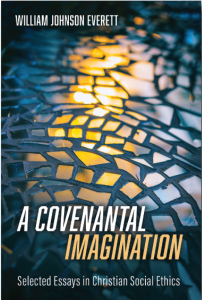
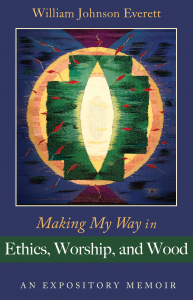
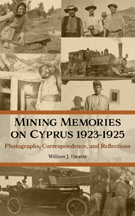
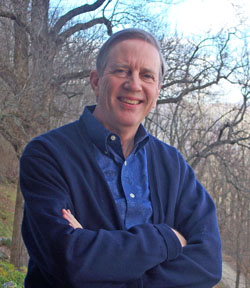
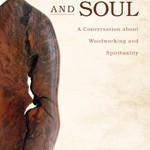
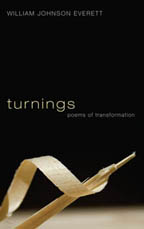
 Red Clay, Blood River
Red Clay, Blood River
Thanks for the extensive comment on the question of Luther’s relation to religious and political liberty. The reasons why things developed differently in Germany are complex and many. However, as I pointed out in my study of the church in Germany’s “Revolution” of 1989, the seeds of political liberty still lived in German soil and could be drawn on to create the little publics of the church in the development of a more democratic Germany. Needless to say, we all have a lot of work to do to keep this light alive!
Dear Bill and other friends, unfortunately in my text I did not check spelling etc. Therefore, the quote from Luther was distorted. The famous paradox should read: ““A Christian is a free lord of all things and subject to nobody and a Christian is a ministering servant to all things and subject to everyone.” Please accept my apologies!
Gerd
Dear Bill, this is a great insight into the beauty of religious and political liberty and their pitfalls. Interestingly enough, I was reminded of Martin Luther’s original insight into the freedom of the individual conscience of the believer – and still wonder why out of this emphasis on religious liberty there did not follow an emphasis on political liberty as well.
When Luther said in one of his most basic early theological writings “On the Freedom of a Christian” (1520) “A Christian is a free lord of all things and subject to nobody” and paradoxically also “A Christian is serving of all things and to subject to everybody” he stressed that in spiritual matters every person is free in their conscience bound by the Scriptures insofar as they are expressing Jesus Christ (i.e. not fundamentalistic belief in every written word, but belief in the Christ spirit of the Bible). Having “crawled out of baptism” each Christian is “pope, bishop, priest” and not subject to any human, clerical or political spiritual authority (a wonderful anti-totalitarian bias!).
And the “being subject to everybody” is his expression of the calling to love one’s neighbor, which goes as far as loving one’s enemy. This is expressed in diaconic activities of all kinds, but also in political assessments of what the emperor, kings, dukes, princes, nobility of all kinds, but also city authorities in the Free Cities, i.e. all political authorities are proclaiming and doing. Luther was adamant in demanding from the Christians to speak up when injustice and oppression and exploitation are lurking, and to be willing to suffer the consequences of his free speech on the basis of the Bible message, but he feared more than anything chaos and anarchy (emperor Maximilian in 1495 had for the first time proclaimed the Eternal Peace of the Land prohibiting all feuds taking the law into one’s own hand, that’s why he did not support the lower nobility nor the peasants when they took to violence). Looking at what has happened in the countries from Afghanistan to Irak, Syria, South Sudan, Somalia, Libya, this concern makes a lot of sense.
But why did he not draw the consequences of “the priesthood of all believers” toward the political liberty of all believers like Cromwell’s soldiers did on the basis of their common baptism (this I learned in 1988 from you, dear Bill, being a German and not so conversant with English and American church history)? In situations of war, Luther asked the Christian soldier to judge by himself whether or not a war was justified as a war of defense, if not the soldier had to become a war resister and suffer the consequences. (in his writing 1526 “Whether soldiers can be in a state of being saved”). I guess it was the extremely static stratification of society in his times, the first state (nobility) second state (clergy), third (bourgeoisie) and fourth state(peasants and workers of all kinds) and his belief that all political authority was from God and had to be obeyed (Romans 13). That tyrants who forced people to reject their newly found faith and take on another one and tried to push this through with military means had to be resisted even by force by lower authorities (a kind of budding federal division of authority) is true also. It is toobad that there did not really develop a democratic öolitical movement ouot of the Lutheran reformation. It could have, but it did not, maybe because Luther saw no other way, but make the Lutheran princes the emergency heads of the new Lutheran territorial churches of their lands, like the Anglican church with the king/queen as its head – sort of like John Winthrop’s idea?
Well, where would Roger Williams and Martin Luther meet and where could Roger Williams’s ideas be drafted on to the Lutheran Reformation?
May the Spirit of religious and civil liberties guide you in the USA as well as us in Germany/Europe,
Love, Gerd
Bill, what a fascinating and instructive presentation of historical context for contemporary controversies — which somehow makes current angst a bit easier to bear.